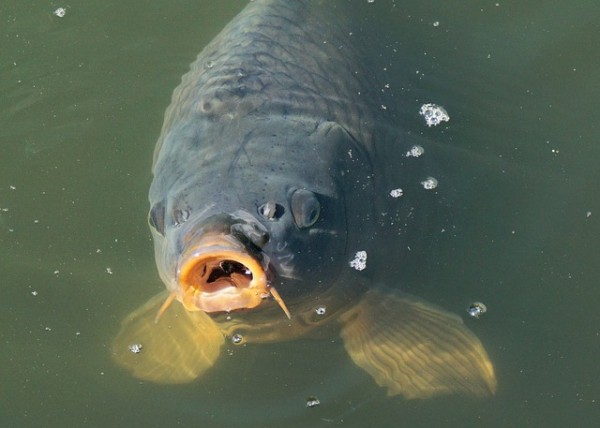By S. Rina, | October 24, 2016

Climate change is affecting the brains of fishes, leaving them vulnerable, according to a new study.
Climate change is adversely affecting the sensory system of fishes, making them more vulnerable to attacks.
A new study has revealed that the rise in carbon dioxide level can impair the vision, hearing, and olfactory senses of fishes. It can also affect the way fishes behave including making them ignore sounds alerting them about dangers.
Like Us on Facebook
According to a paper written by Dr. Robert Ellis and Dr. Rod Wilson, the increase in carbon dioxide level is affecting the way the brain of fishes process signals sent by sensory organs. It is expected that the carbon dioxide levels in the oceans will be 2.5 higher by the turn of the century. The study stated that fish farms might play a key role in determining the long-term impact of carbon dioxide on aquatic life. The paper was published in the Journal Global Change Biology.
The paper, entitled 'Lessons from two high CO2 worlds: future oceans and intensive aquaculture, shows that farmed fishes are exposed to 10 times higher carbon dioxide levels than their wild counterparts. Carbon dioxide in water leads to the production of carbonic acid, which in turn increases the pH level in the water.
According to Dr. Wilson, the finding could enable farmers to optimize the conditions in their farms to improve the health and growth of their fishes. They can specifically work towards managing the carbon dioxide levels in the water. This may also help in improving the sustainability and profitability of the farms. Dr. Wilson added that aquaculture is the only way to satisfy the growing seafood demand.
-
Use of Coronavirus Pandemic Drones Raises Privacy Concerns: Drones Spread Fear, Local Officials Say

-
Coronavirus Hampers The Delivery Of Lockheed Martin F-35 Stealth Fighters For 2020

-
Instagram Speeds Up Plans to Add Account Memorialization Feature Due to COVID-19 Deaths

-
NASA: Perseverance Plans to Bring 'Mars Rock' to Earth in 2031

-
600 Dead And 3,000 In The Hospital as Iranians Believed Drinking High-Concentrations of Alcohol Can Cure The Coronavirus

-
600 Dead And 3,000 In The Hospital as Iranians Believed Drinking High-Concentrations of Alcohol Can Cure The Coronavirus

-
COVID-19: Doctors, Nurses Use Virtual Reality to Learn New Skills in Treating Coronavirus Patients







